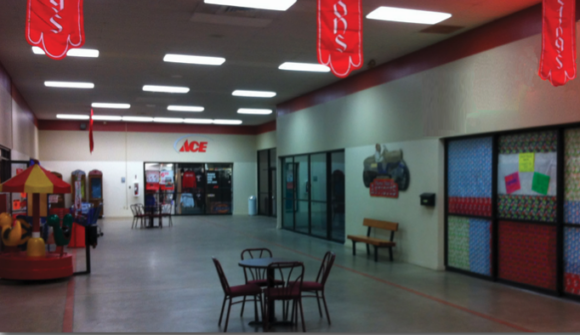The ordinance-or-law endorsement in a commercial property policy may require Cincinnati Insurance Co. to pay $1.3 million to replace a roof that suffered only $23,000 in tornado damage.
A panel of the 8th Circuit Court of Appeals on Thursday reversed a US District Court decision to grant summary judgment in favor of Cincinnati Insurance Co. in a dispute over damage to the roof of the Cannon Mall in Cannon Falls, a suburb south of Minneapolis, Minnesota.
Even though storm damage required the replacement of 100 square feet of roof, the entire roof had become saturated with water. Because the Minnesota building code requires replacement of roofs in that condition, Goodhue County denied the mall’s application for a building permit.
The appellate panel said that is exactly the circumstance envisioned by the ordinance-or-law coverage provided by the insurance policy.

“We hold the tornado was a but-for cause of the county’s enforcement of the ordinance,” the panel’s opinion says. “We also hold that even if ‘resulting in’ requires ‘something more than literal but-for causation,’ the endorsement still covers the cost of replacing the mall’s roof.”
Attorney Alexander Jadin, who represented the mall’s owner, said wind damage claims are one of the most common reasons for property disputes in Minnesota.
“As far as policy construction and what people bargain for when they buy additional coverages, this is the right result for this,” he said. “This is what the (ordinance-or-law coverage) is supposed to do.”
Rymer Cos., which owns the mall, filed a claim after a tornado passed nearby on Sept. 20, 2018. The company submitted a damage estimate of $1.3 million. Cincinnati said the tornado came no closer than a quarter mile from the mall and found only minor damage. It offered $10,702.40.
The parties agreed to appoint appraisers. The panel concluded that most of the damage to the roof was caused by pre-existing water saturation. The panel valued the actual storm damage at only $23,226.
But Goodhue County refused to issue a permit for partial repairs, insisting that the building code required a complete replacement.
Rymer refused to accept the settlement offer and argued that the ordinance-or-law clause in its policy required the insurer to pay to replace the roof.
Cincinnati filed a lawsuit seeking a declaratory judgment and Rymer filed a counterclaim. US District Judge Eric C. Tostrud granted the insurer’s motion for summary judgment. Rymer appealed.
The 8th Circuit panel said Rymer’s ordinance-or-law claims differs from others that courts have rejected: The mall owner was not required to replace the roof before the storm occurred, so the company wasn’t trying to “bootstrap” the cost of repairing pre-existing conditions to a covered loss. The county demanded replacement only because Rymer was seeking a permit to make partial repairs.
The panel said exclusions in the ordinance-or-law endorsement shows that the insurers could have avoided coverage by choosing different policy language. For example, enforcement of a law or ordinance caused by pollution or bacteria are excluded. The policy also excluded repairs that were required before the damage occurred but were not completed because of a “failure to comply.”
“Notably absent from this list is a roof’s water saturation,” the opinion says.
Jadin said many commercial property policies in Minnesota have “anti-concurrent” causation clauses that bar ordinance-or-law coverage for pre-existing conditions. He said Cincinnati could have added such a cause to Rymer’s policy, or could have chosen not to insure the roof at all.
About the photo: The interior of the Cannon Malls, located in Cannon Falls, Minnesota, is shown in a photo taken from Rymer Companies’ website.
Was this article valuable?
Here are more articles you may enjoy.


 Tesla Sued Over Crash That Trapped, Killed Massachusetts Driver
Tesla Sued Over Crash That Trapped, Killed Massachusetts Driver  Berkshire Utility Presses Wildfire Appeal With Billions at Stake
Berkshire Utility Presses Wildfire Appeal With Billions at Stake  Canceled FEMA Review Council Vote Leaves Flood Insurance Reforms in Limbo
Canceled FEMA Review Council Vote Leaves Flood Insurance Reforms in Limbo  Hackers Hit Sensitive Targets in 37 Nations in Spying Plot
Hackers Hit Sensitive Targets in 37 Nations in Spying Plot 